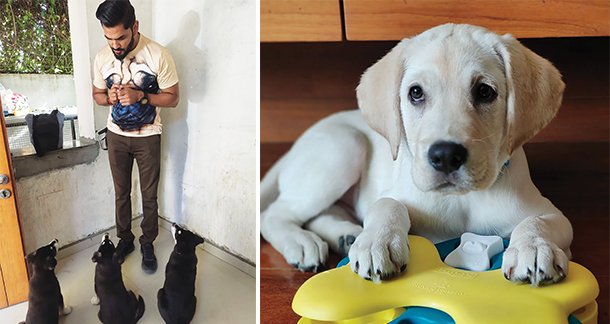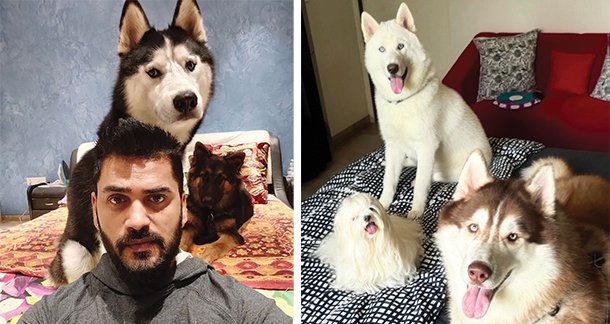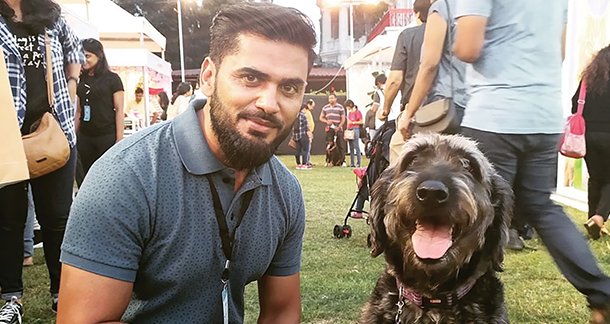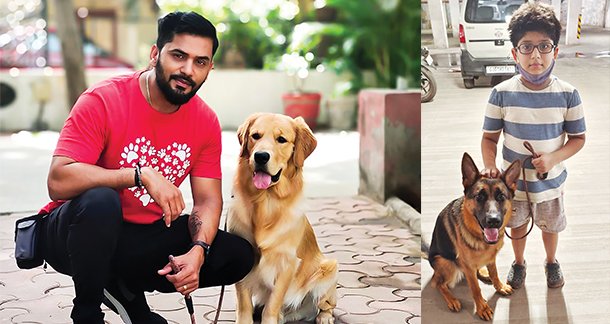By Ketan Panchal*
Dogs bring immeasurable joy and love into our lives, becoming cherished members of our families. To ensure their well-being and enhance the bond we share, dog training plays a pivotal role. Training is essential for the overall well-being of our furry friends, and the benefits it brings to their owners. From mental stimulation to improved communication and safety, to self-confidence and bonding, there are several key reasons why it’s a must for every dog parent.
Dogs and humans form a unique bond, unlike any other. Without training and learning, however, having a dog can be frustrating and often overwhelming. Training a dog must be fun for you and for your pet.

When I’m working with my students (dogs), I stress that keeping the dog motivated to learn is the most important part of the job. If your dog isn’t interested in working with you, chances are they aren’t learning much of what you are trying to teach them. One unfortunate side effect of an uninterested dog is that the human trainer will often get frustrated and try lots of different things to re-engage the dog in the learning process. We move, cheer, tease, and can be quite vocal in our efforts to get the dog to pay attention to us. It’s probably best to take a break and rethink how you go about your training if keeping your dog’s focus is a frequent problem.
Positive trainers can have lots of success in keeping their dogs engaged. There are many dogs that can’t wait to work for their rewards. For some dogs it’s food, for others, it’s a game of tug, and for others, it is a game of fetch with their ball.

Playing to distraction
I like to move beyond basic food rewards when using positive reinforcement training. Most dogs find play rewarding, whether that play is chasing a ball, playing tug, or just engaging with their human in a little play wrestling. Used effectively, play can be a great reward for teaching behaviour. One aspect of play is that it can be so stimulating that it can actually get in the way of learning. Clearly, the dog enjoys the game, but is the anticipation of that game becoming a distraction? At what point is your dog learning behaviour and when are they just doing anything to get you to play?
Play is a very seductive reward to use in training. A dog that enjoys their game is very obvious about it and let’s face it, it is great watching our dog have a good time. In fact, it can be so engaging for the trainer to see their dog having fun that it may actually cloud our understanding of just how much learning is going on.
Many trainers use food in their training. One common form of food training is called Lure and Reward training. The basic process uses a food treat held in front of the dog as a prompt to get them to transition to the desired behaviour. The key to using food lures in training is getting rid of the food without losing the behaviour. However, there is potentially a more detrimental aspect to this type of training. The food itself could be a distraction.
This same physiological response can work against the trainer attempting to do lure and reward training. If the food is held too close to the dog during training, it is quite possible that any learning about what behaviour they are doing is being overwhelmed by the scent of the food and the physical response that produces.

Having fun is not necessarily learning. The lesson here for me is that seeing my dog enjoy herself during training is not really a guarantee that she is learning what I am trying to teach her. This is where my advice to dog parents can get me into trouble. Yes, a motivated dog is necessary in order to be effective in training them. They have to be engaged and “in the game”, so to speak. But as a trainer, I need to be careful that I am managing all of the stimuli and distractions, including the rewards they are working for, so they don’t become overwhelmed.
Not every training session has to be the pinnacle of efficient learning. Sometimes it’s better to just go with the flow and make it into a game. Being a good trainer sometimes means keeping a balance between challenging them to learn something new and just having fun.
A dog that is eager for rewards will work hard for you. Just don’t let the anticipation of those rewards work against you. During this process, remember to have fun with your dog!

